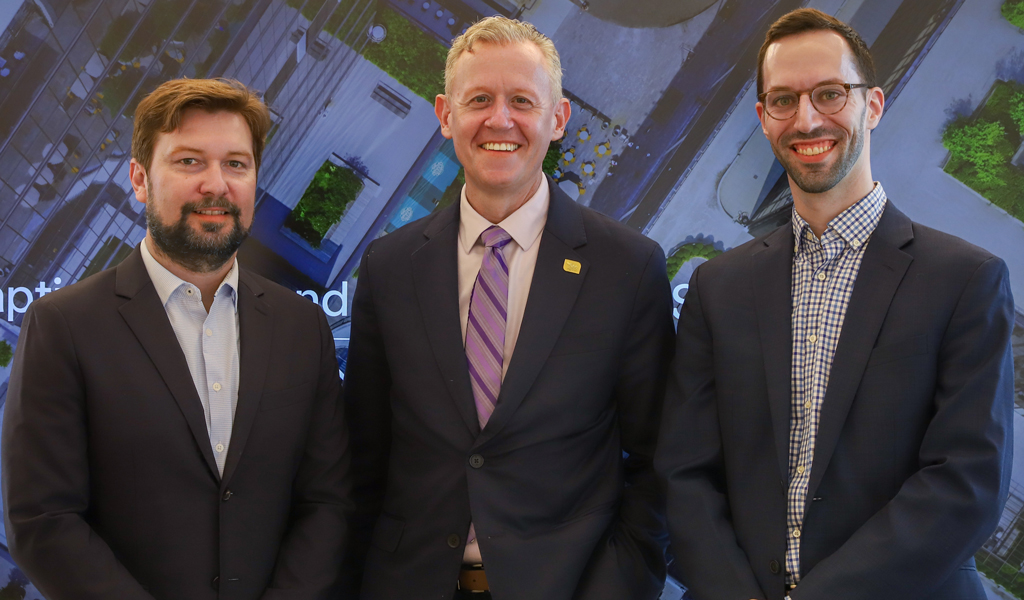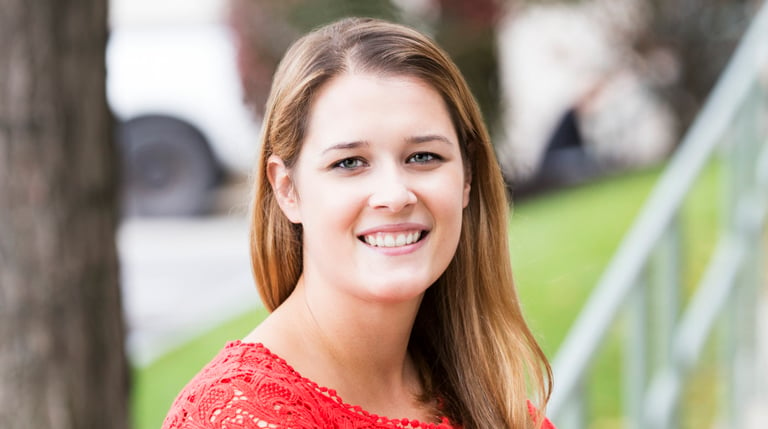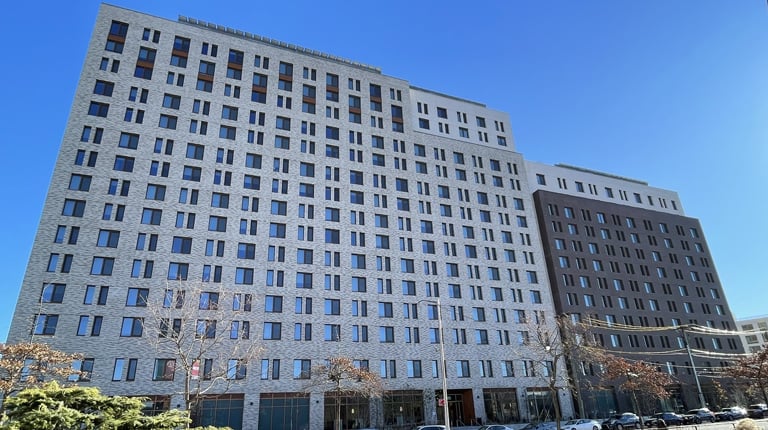As part of Climate Week NYC 2025, Vornado Realty Trust and VHB co-hosted a dynamic event in THE PENN DISTRICT. The program, “Adaptive Reuse and District-Level Sustainability,” brought leaders in planning, real estate, and sustainability together to explore how adaptive reuse and district-level sustainability maximize efficiency, reduce carbon impacts and deliver community benefits, such as climate resilience, access to public transit, and improvements to the public realm.
Moderated by Felix Ciampa, Executive Director of Urban Land Institute (ULI) New York, the panel featured:
- Judy Kessler, Vornado Realty Trust
- David Quart, Northeast Regional Real Estate Market Lead, VHB
- Carlos Cereza Davila, Global Director of Sustainability, KPF
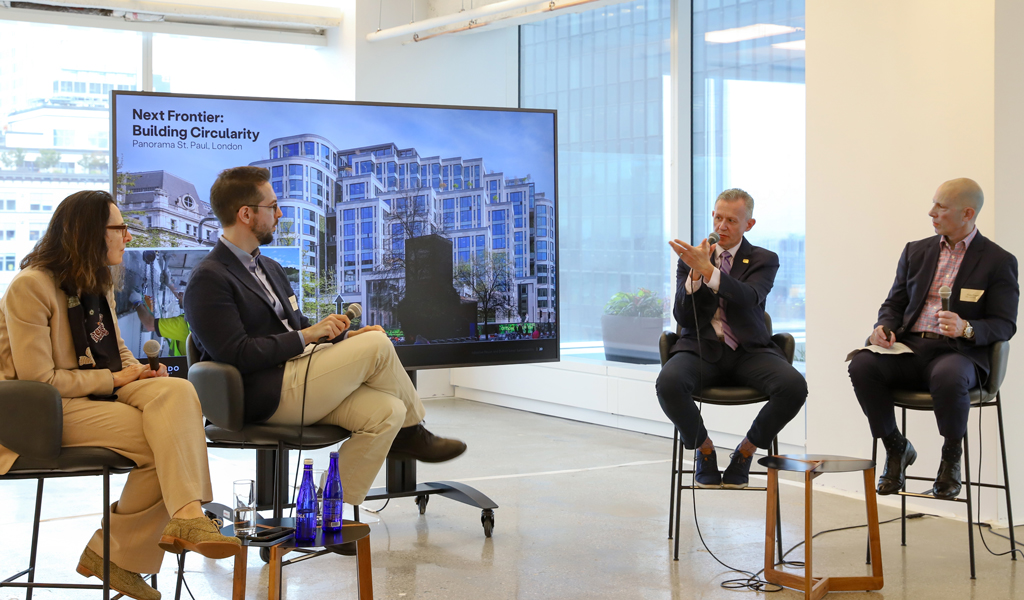
The speakers provided insights into how adaptive reuse and district-scale strategies can foster resilience, health, and equity in urban communities by taking a systems-level approach instead of building by building.
Adaptive reuse extends the life of existing assets and reduces embodied carbon by preserving existing structures, thus minimizing the need for new construction materials and waste generation. This approach not only curtails emissions but also enhances efficiency through retrofitting, reducing the overall carbon footprint of buildings.
Adaptive reuse also unlocks opportunities for community enrichment by encouraging collaboration between developers and local communities. These partnerships allow for buildings and infrastructure to be reimagined to provide connectivity to the community and access to amenities. In urban settings this often translates into upgrades to adjacent transit stations and enhancements to open spaces.
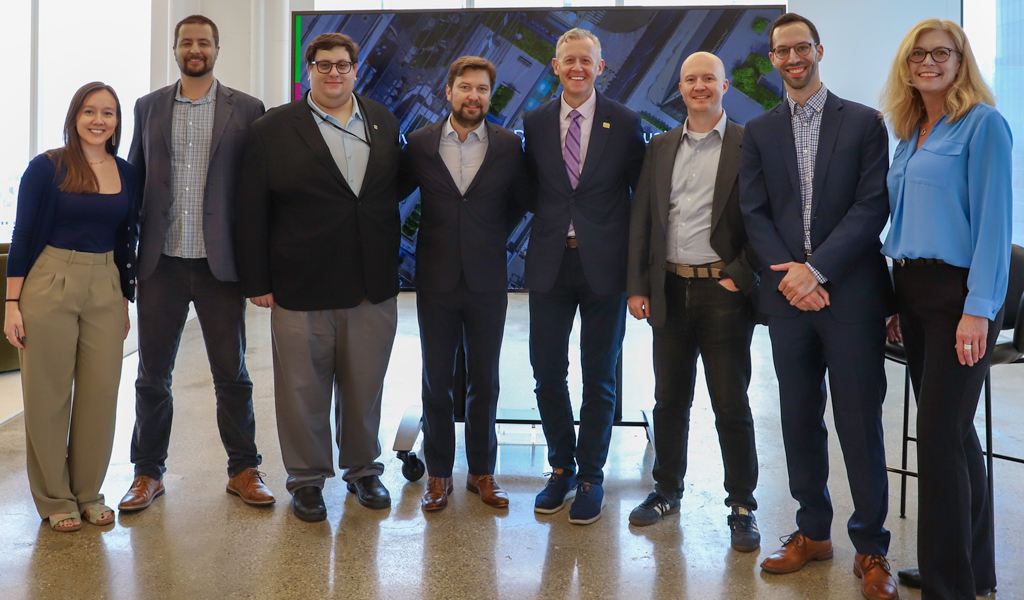
PENN 2 in THE PENN DISTRICT was an ideal setting for the conversation on adaptive reuse. Vornado Realty Trust has transformed the District above Penn Station, the busiest transit hub in North America, into a more vibrant, sustainable and connected destination. Vornado has modernized structures and reimagined offices with a premier Work Life amenity program that has attracted major tenants such as Meta, Samsung, Universal Music Group, Verizon and more. This event highlighted lessons from the District that can inform other communities seeking to reduce carbon impacts while enhancing resilience and livability.
"Adaptive reuse breathes new life into spaces by honoring their storied past while envisioning a vibrant future, fostering environmental sustainability and catalyzing community revitalization," said Northeast Real Estate Market Leader, David Quart. "We are partnering with city agencies and developers to facilitate innovative projects in urban centers. In communities like New Rochelle, we are focused on transforming transportation corridors. Currently, we're overseeing the design and approvals for the LINC project on behalf of the City of New Rochelle. This initiative aims to convert a highway into a local street and linear park, enhancing neighborhood connectivity and creating new public open spaces to drive community revitalization and economic growth."
As cities across the nation pursue carbon neutrality, adaptive reuse provides a scalable solution that addresses both environmental and community needs. By partnering with clients and collaborators like Vornado, VHB is helping to raise awareness of the benefits of district-scale sustainability to support communities in achieving their sustainability goals while creating lasting community benefits.
To learn more about our resilient real estate solutions, connect with David Quart today.
